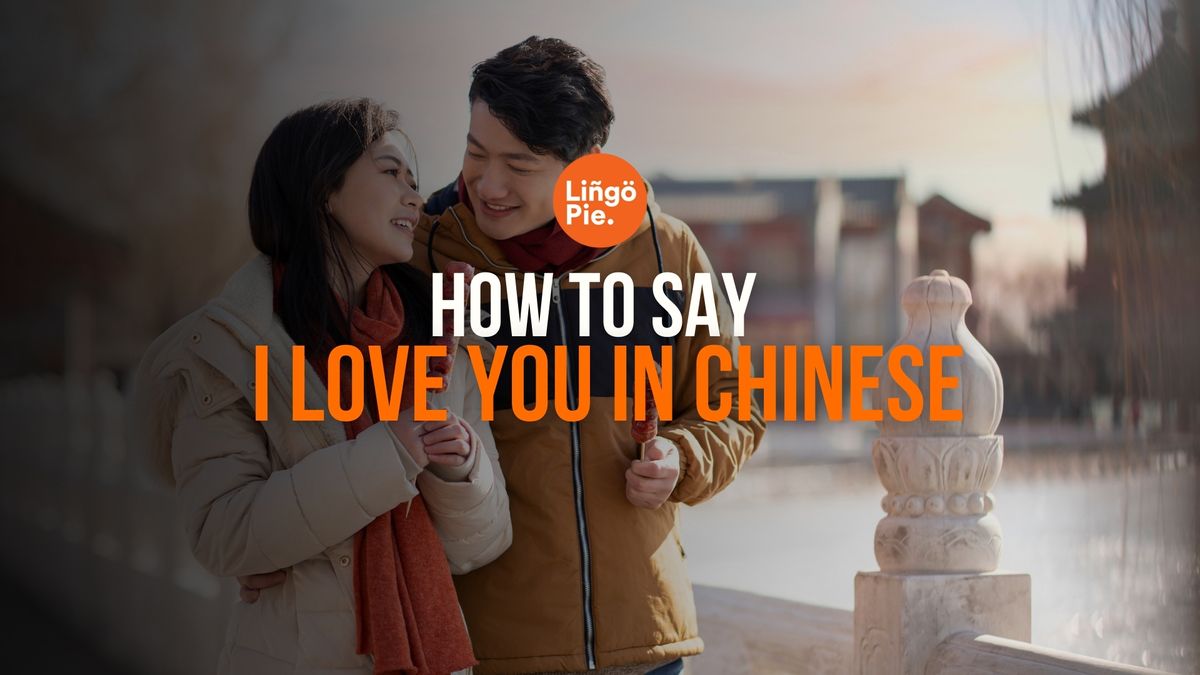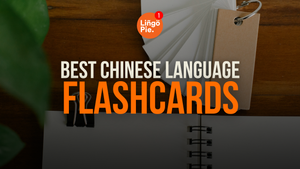Have you ever wanted to tell your partner I love you in Chinese but weren’t sure how to say it or if it would come across the right way? For international couples, learning how to express love in each other's language can be a beautiful way to strengthen your bond and show how much you care.
In this post, you’ll learn how to say I love you in Chinese and explore culturally meaningful ways to express your feelings. From sweet phrases to unique poetic idioms, you can show your love in a way that resonates with them.
- 5 Best FREE Chinese Learning Websites For Beginners
- 10 Common Mistakes In Chinese You Should Not Commit
- Chinese Numbers: How To Count In Chinese From 1-1000

How To Say I Love You In Chinese?
The most common way to say I love you in Chinese is 我爱你 (wǒ ài nǐ). The phrase is straightforward, with 我 (wǒ) meaning "I," 爱 (ài) meaning "love," and 你 (nǐ) meaning "you."
In long-term relationships, you might hear 我爱你一辈子 (Wǒ ài nǐ yí bèizi), meaning “I love you for a lifetime.” The word 一辈子 (yí bèizi) means “one lifetime,” emphasizing commitment and permanence.
Unlike in Western cultures, where "I love you" might be said more casually, Chinese culture values subtlety, so love is frequently expressed through actions or less direct phrases like 我喜欢你 (wǒ xǐhuān nǐ), meaning I like you.
Other Ways To Say I Love You In Chinese
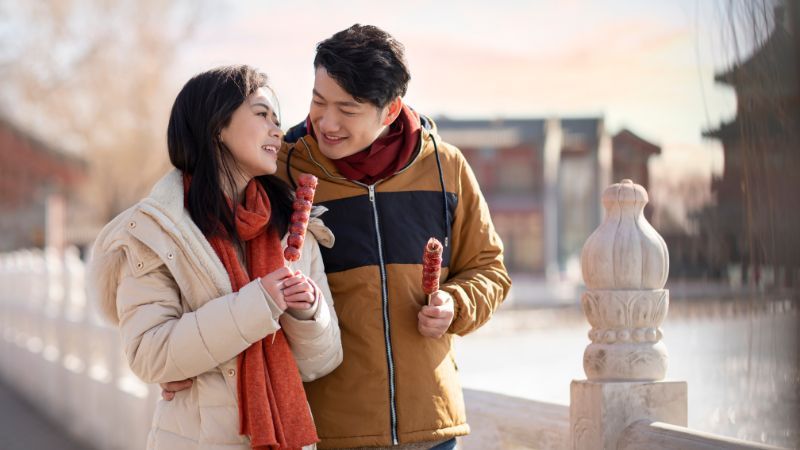
These alternative phrases give you a variety of ways to say I love you in Chinese, depending on how deep your feelings are and the stage of your relationship. Whether you're in a playful, early stage of attraction or looking to declare everlasting love, these Chinese phrases can perfectly match the moment!
1. 我喜欢你 (wǒ xǐhuān nǐ)
I like you
For a softer expression, many people say 我喜欢你 (Wǒ xǐhuān nǐ), which means “I like you.” Here, 喜欢 (xǐhuān) means “to like” or “to be fond of,” and it is commonly used in early dating stages before saying 我爱你.
2. 你对我很重要 (nǐ duì wǒ hěn zhòngyào)
You are very important to me
This phrase shows a deep emotional connection, expressing that someone holds a significant place in your life. It's a beautiful way to convey affection without the weight of the word "love."
3. 我对你感兴趣 (wǒ duì nǐ gǎn xìngqù)
I’m fond of you
This phrase expresses a sense of interest or attraction. It's a soft way to tell someone you're beginning to develop feelings for them, but not yet in love. It’s a more casual, approachable way of expressing affection, especially early on in a relationship.
4. 我非常喜欢你 (wǒ fēicháng xǐhuān nǐ)
I like you very much
This phrase is a stronger expression of liking and is ideal for when you feel a deeper connection with someone but aren't quite ready to say "I love you." It's commonly used in budding relationships as feelings grow stronger.
5. 每次看到你,我都像小鹿乱撞 (měicì kàndào nǐ, wǒ dōu xiàng xiǎolù luànzhuàng)
Every time I see you, I have butterflies in my stomach
This charming and playful phrase captures the nervous excitement that comes with infatuation, often used to describe the fluttery feelings you get when you see someone you're attracted to. It’s perfect for new relationships or crushes.
6. 我被你煞到了 (wǒ bèi nǐ shà dào le)
I am hooked on you
This informal phrase conveys that you're deeply captivated or enchanted by someone. It’s a fun, lighthearted way to express your attraction when you're drawn to someone but still in the early stages of getting to know them.
7. 月亮代表我的心 (yuèliàng dàibiǎo wǒ de xīn)
The moon represents my heart
This poetic and symbolic expression is often used in serious relationships. It comes from a famous Chinese song and conveys deep, enduring love. It’s a beautiful way to tell someone how much they mean to you, especially when you want to add a romantic, almost nostalgic touch to your feelings.
8. 执子之手,与子偕老 (zhí zǐ zhī shǒu, yǔ zǐ xié lǎo)
Hold your hand and grow old with you
This ancient Chinese expression symbolizes a lifelong commitment to someone. It's often used in more serious relationships or even during proposals, expressing the desire to stay together forever and experience life’s journey side by side.
9. 我爱你爱到天荒地老海枯石烂 (wǒ ài nǐ ài dào tiānhuāngdìlǎo hǎikūshílàn)
I will love you until the end of time
This dramatic and intense phrase represents an unyielding, eternal love. It's used to express an unwavering commitment, often during important milestones like engagements or declarations of eternal affection, promising that your love will last forever no matter the obstacles.
Read Also:
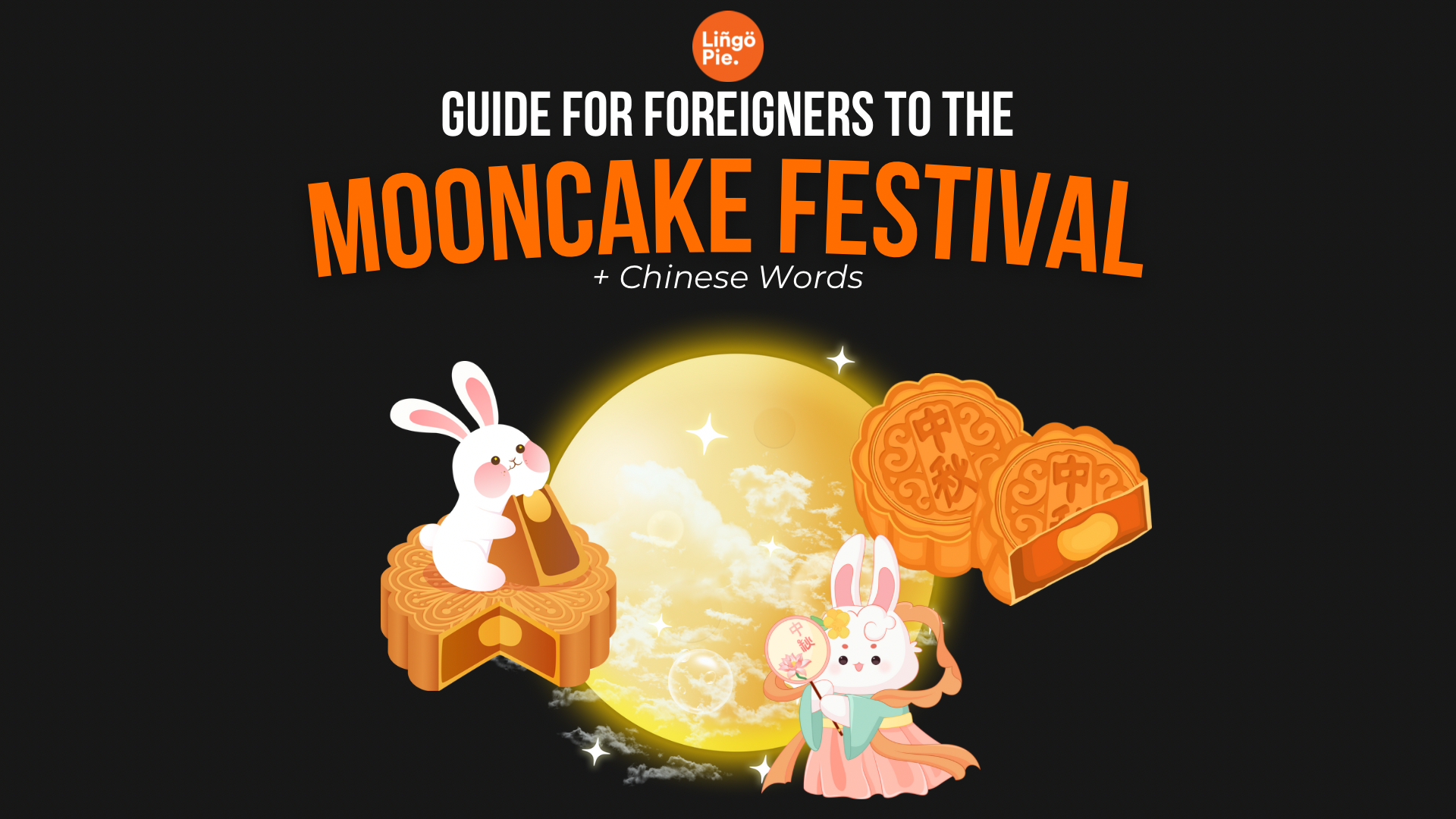
Chinese Terms of Endearment
In Chinese, terms of endearment are commonly used to show affection, closeness, and emotional warmth. Here are some of the most common Chinese terms of endearment:
| Chinese Term | Pinyin | Literal Meaning | Common Use |
|---|---|---|---|
| 宝贝 | Bǎobèi | Treasure | Romantic partners, children |
| 亲爱的 | Qīn’ài de | Dear / Beloved | Romantic partners |
| 老公 | Lǎogōng | Husband | Wives addressing husbands (sometimes boyfriend playfully) |
| 老婆 | Lǎopó | Wife | Husbands addressing wives (sometimes girlfriend playfully) |
| 小可爱 | Xiǎo kě’ài | Little cutie | Playful, sweet nickname |
| 宝宝 | Bǎobao | Baby | Romantic partners, affectionate tone |
| 亲 | Qīn | Dear (short form) | Casual texting, online slang |
| 心肝 | Xīngān | Heart and liver (beloved) | Very intimate, traditional |
| 丫头 | Yātou | Girl / Little girl | Affectionate, often older male to younger female |
| 傻瓜 | Shǎguā | Silly / Fool | Playful teasing between couples |
In romantic relationships, 宝贝 (bǎobèi) and 宝宝 (bǎobao) are especially common, while 老公 and 老婆 are often used even before marriage to signal closeness. Tone and familiarity matter — some of these terms can feel deeply intimate if used too early in a relationship.
How To Propose In Chinese?
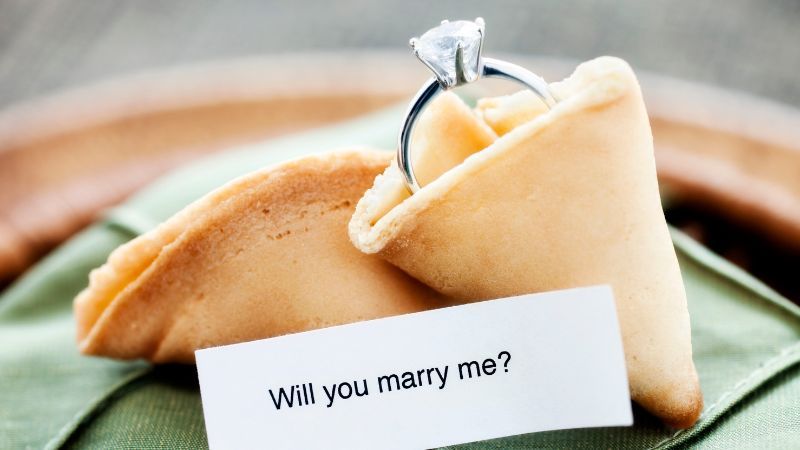
In Chinese culture, proposals are often seen as significant milestones in a relationship, and deep emotional expressions of commitment and love usually accompany them.
Here are some common Chinese proposing phrases:
我想和你在一起 (Wǒ xiǎng hé nǐ zài yīqǐ)
I want to be with you
This phrase is a gentle way of expressing your desire to spend time and build a life with someone. It's commonly used when you're ready to take the relationship to the next level but not necessarily proposing marriage yet.
我们交往吧! (Wǒmen jiāowǎng ba)
Let's be together!
This is a more direct and playful way of asking someone to be in a relationship with you. It's suitable when you're ready to commit to each other romantically and start officially dating.
嫁给我,好吗? (Jià gěi wǒ, hǎo ma?)
Marry me, will you?
This is the classic marriage proposal phrase in Chinese. It's a heartfelt and sincere way to ask someone to spend the rest of their life with you, often used during a serious commitment or proposal.
Read Also:
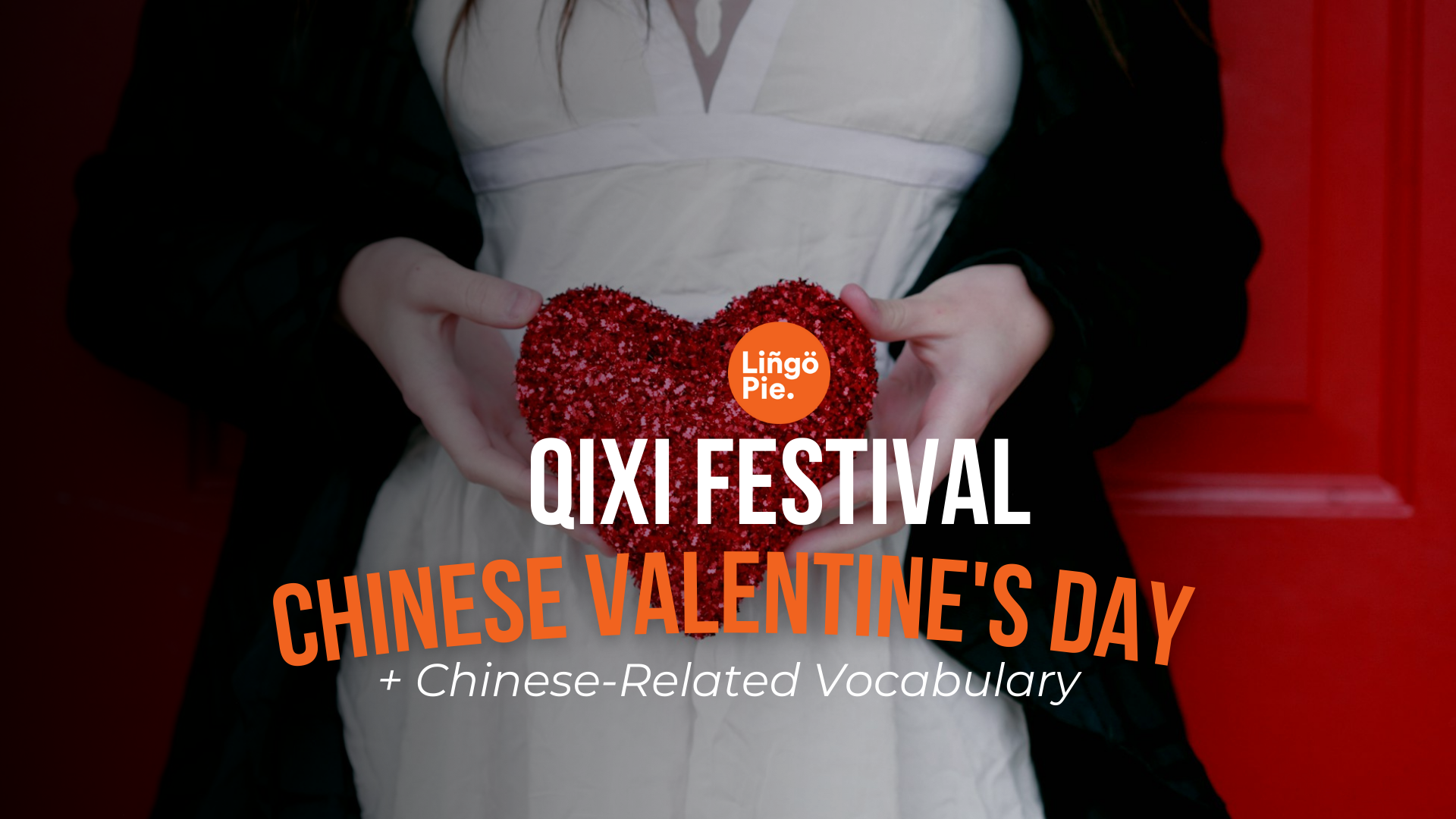
Frequently Asked Questions
1. How do you say I love you in Chinese slang?
In Chinese slang, a more casual way to say "I love you" is "我喜欢你" (wǒ xǐhuān nǐ), which means "I like you." It's less intense and often used in the early stages of a relationship.
2. Do Chinese people say I love you?
Yes, Chinese people do say "I love you," but it's not as commonly said as in some Western cultures. It’s often expressed in more subtle ways, such as through actions or phrases like "你对我很重要" (nǐ duì wǒ hěn zhòngyào), meaning "You are very important to me."
3. What is mahal kita in Chinese?
"Mahal kita" is Filipino for "I love you." In Chinese, you would say "我爱你" (wǒ ài nǐ), which directly translates to "I love you."
4. How to reply to "wo ài ni"?
A common reply to "我爱你" (wǒ ài nǐ) is "我也爱你" (wǒ yě ài nǐ), which means "I love you too."
Learn Chinese By Watching Chinese Shows
In this guide, we’ve learned different ways to say I love you in Chinese and propose in Chinese, from the classic 我爱你 (wǒ ài nǐ) to more poetic expressions. Understanding these phrases can help you connect with your partner in a meaningful way and express your feelings clearly in Chinese.
If you want to learn more than just the essential Chinese phrases, check out Lingopie to get fluent in Chinese! Lingopie is a great platform that lets you learn Chinese through TV shows and movies with interactive subtitles. It’s the easiest and funniest way to pick up new phrases and practice them in real-life contexts.
Try Lingopie for FREE now and start learning Chinese the "real" fun way!


